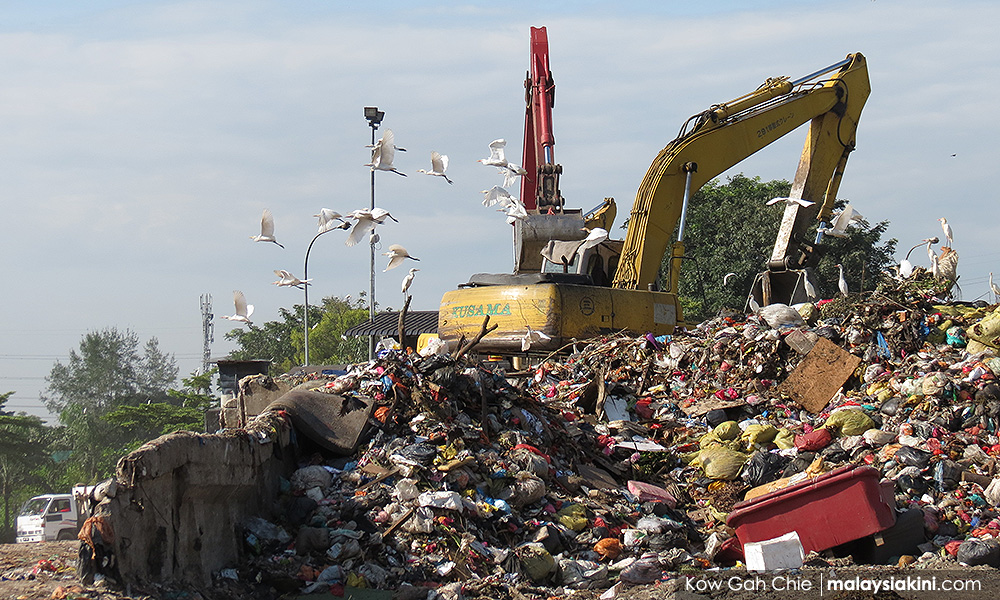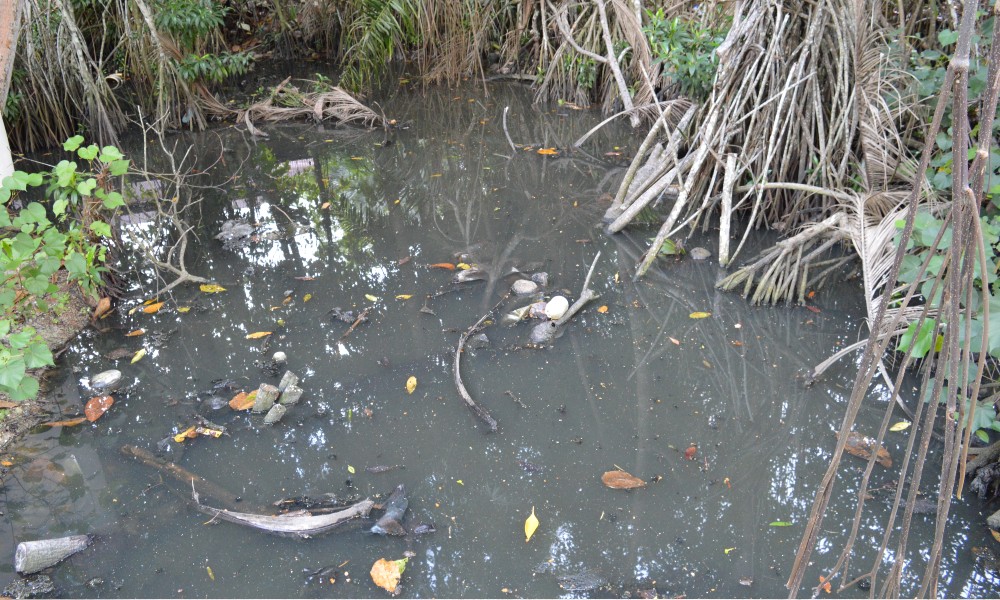A craving for Malaysian-style corn in a cup, drenched with condensed milk and swimming in cholesterol-laden Planta margarine had us literally chasing the corn seller down the road.
Note though, he was not running away from his customers but from municipal council enforcement officers.
It made us wonder, are the enforcement guys on their kapcai motorbikes missing the forest for the trees?
In a pandemic, as the B40 struggle to eke out a living, should the main concern be whether they have a license to operate? That is the problem with Malaysian-style enforcement – it’s all muscle but merely a performance fulfilment, meanwhile, the true problem remains under the plush Turkish carpet.
While we are locked up and lucked out on holiday options, the islands of Malaysia are busy healing themselves from our callous and careless ways.
One study in 2010 found that Malaysia’s islands produce 400 tonnes of solid waste a day.
Of these, 60 percent were collected and disposed at landfills, 35 percent burned, and five percent dumped into the sea.

Taking it a little further, what happens to our bodily waste flushed down the toilet? Have you seen an Indah Water Konsortium logo near any of the resorts you’ve been to?
Poor sewage treatment is affecting the marine ecology at islands, but it is often kept on the back burner, an untouched problem.
Instead, enforcement officers from the various government agencies fulfil their monthly, quarterly or annual Key Performance Index (KPI) by sniffing out undocumented migrant workers at resorts, establishments serving alcohol without a license, checking up on resort license renewals, and whether the kitchen staff have had their typhoid jabs. They have found their trees, but the forest misses their mark.
So, no one checks if the resort’s septic tank capacity matches its room capacity. No one checks if the resort is maintaining its sewage treatment system in compliance with the regulations, as they claim islands are too far off and a lack of manpower and budget does not justify a site visit for this.
Funds there but untapped
Interestingly, however, funds have been allocated by the government for marine conservation under the Department of Fisheries. However, these funds are yet to be tapped into.
Given that the untreated sewage from resorts ends up contaminating the waters around the islands which are predominantly marine parks, funds can be obtained from this source to ensure that proper sewage facilities are employed.
A proposal to set up a centralised sewage treatment plant on Perhentian and Redang Islands was mooted under the 10th Malaysia Plan circa 2011 for RM117 million and has been brought forward to the current 12th Malaysia Plan, due to budget constraints.
These proposals were raised by Indah Water Konsortium via the National Water Services Commission.
It remains unclear if the plant will even be constructed under the 12MP as the Sewage Services Department, in charge of executing the plan, said it does not have a timeline for commencement, but the project is likely to begin before 2025, the end of the 12MP period.
A similar proposal had been suggested for Tioman Island under the 9th Malaysia Plan as far back as 2006 but has also yet to materialise due to budgetary constraints.
With Singapore-based Selo Group planning to roll out a vacation home development with private air-transfers on Tioman Island and plans to construct an international airport apparently on the cards, one can’t help but wonder if whispers of its de-gazettement as a Marine Park could be true.

The Ostrich Effect
District, state, federal and across ministries – the demarcation of responsibilities in managing sewage, solid waste, and even licence to operate resorts on islands overlap, fades and blurs as each set their own goals in silos and chase respective KPIs.
Statistics, research and analysis are commissioned but appear to be filed and tucked away for ‘record purposes’ without drawing conclusions on key factors such as carrying capacity and changes in Marine Water Quality.
Interestingly, when an officer with a local authority in Terengganu was asked who should monitor the sewage on islands, he intrepidly replied, “We actually do not know. Because most of us are new here, but we are trying to find out.”
Is this the age-old government officer's ‘tidak apa’ attitude at play, or a form of corruption? Land on islands are largely owned by powerful individuals, or influential locals with voting power and financial muscle believed to be a key factor deterring enforcement actions.
However, when something foul emanates, stirring the media attention, government departments, be it the Environment Department (DOE), local council or the state Economic Planning Unit, phone calls and e-mails are brushed aside with promises of responses on a tomorrow that never comes.
Adapting the Ostrich Effect, the government agencies and departments believe that when answers are not provided, the problem will cease to exist.
It has been over two decades since the sewage pollution problem at Perhentian and Redang Islands were raised and garnered media attention.
For the past 14 years, Reef Check Malaysia, which receives an annual grant from the Department of Marine Park to monitor and record the local ecosystems, has highlighted its concerns about the deteriorating state of live corals and loss of fish stock due to suspected illegal fishing.
The reports are almost a cut and paste every year, indicating action from the authorities clearly has not been taken.
Running a few courses and conducting town halls, seminars and talks do not constitute action.
Hosting foreign marine experts who provide ‘consulting’ services and expensive ‘expert’ advice does not make the problem go away.
Regulations must be enforced and resorts must take accountability for their operations. - Mkini




No comments:
Post a Comment
Note: Only a member of this blog may post a comment.